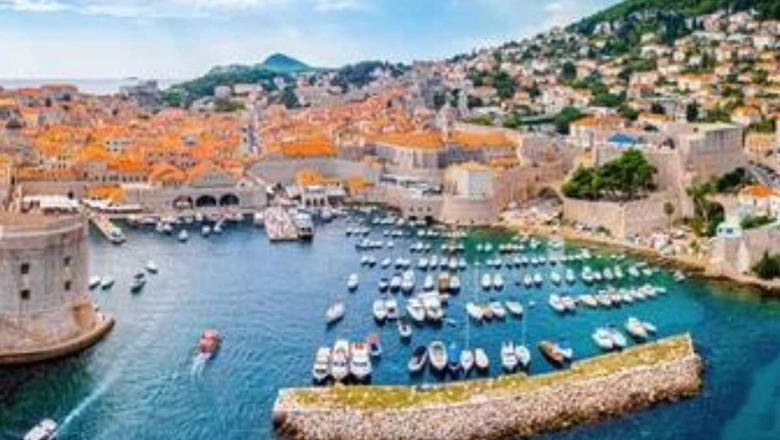
views
As the summer months approach, Southeast Europe emerges as a captivating hub of tourism. It is always ready to invite travellers to experience its enchanting charms and vibrant festivities. From the sun-kissed beaches of Greece and Croatia to the hidden gems of Montenegro and Bulgaria, Southeast Europe offers a plethora of enticing destinations. Along the coast, coastal towns and resorts come alive with vibrant promenades, bustling beach clubs, and charming open-air cafes, creating an energetic and vivacious atmosphere.
Southeast Europe’s popular tourist destinations along the Adriatic and Black Seas experience a concentrated influx of visitors during the peak summer months of July and August, despite efforts to diversify tourism offerings. According to data from the EU’s statistics office Eurostat, the highest number of tourist overnight stays and arrivals occurred in August, closely followed by July in 2022. The rise in nights spent during the peak season suggests that tourists tend to extend their stays, aligning with their main holiday period.
However, this seasonality poses challenges, such as overcrowding and resource strain in tourist areas during busy periods, while quieter times can result in underutilized facilities and job instability. Efforts to manage and balance tourism demand throughout the year remain crucial for sustainable tourism development in the region.
Croatia, known for its stunning coastline, exhibited the most pronounced seasonal pattern, with 60 per cent of overnight stays taking place in the two peak summer months. Bulgaria, with its resorts along the Black Sea coast, and Greece followed closely behind, with 48 per cent and 43 per cent respectively of nights spent in July and August. Similarly, Albania and Montenegro, among the EU candidate countries of the Western Balkans, experienced a high concentration of nights spent during these months.
While Malta and Finland showed the least seasonal variation, Germany closely followed with 26 per cent of total nights spent. In the EU overall, August recorded the highest number of nights spent in 2022, accounting for 18 per cent of the total, with July following closely at 16 per cent. The summer months also saw a significant number of arrivals, contributing 14 per cent each to the total for the year.
With the travel industry back in full swing, European cities once again find themselves grappling with the challenges of over-tourism. By choosing off-peak seasons and practising sustainable tourism, travellers can help preserve these European cities’ cultural heritage and local charm.




















Comments
0 comment